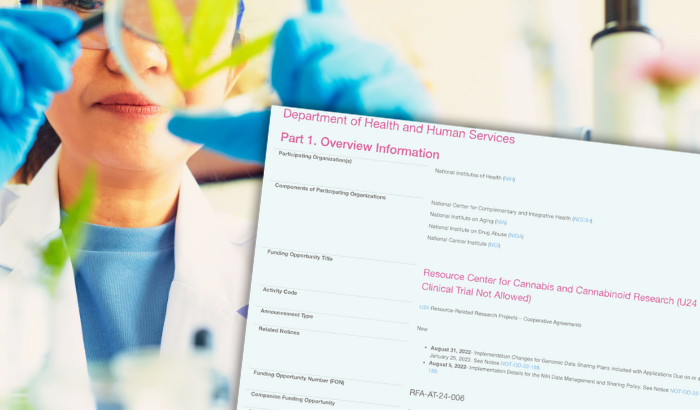
The Resource Center for Cannabis and Cannabinoid Research could end up part of a university, nonprofit, or even faith-based organization
In May, the National Institutes of Health introduced a wild concept. The division of the US Department of Health and Human Services proposed forming “a central Resource Center for Cannabis and Cannabinoid Research intended to reduce barriers to conducting research on cannabis and its constituents,” as well as to “enable researchers to successfully generate more rigorous scientific evidence around the potential clinical uses of cannabis products.”
Such an initiative is as overdue as it is shocking to finally see, and many advocates rejoiced. As initially imagined, the NIH wrote that the center is “also expected to be a focal point for researchers entering the cannabis research space and to support the development and establishment of research tools and studies that will improve upon and eventually change the landscape of cannabis research.”
Now, they’re actually making it happen. They just need an entity that’s capable of bringing it to pass.
Last week, Marijuana Moment writer Kyle Jaeger reported on a new solicitation for applications “to support the development and maintenance of a Resource Center for Cannabis and Cannabinoid Research through a cooperative agreement funding mechanism.” Posted on Oct. 26, the open bid asks applicants “to propose and describe in detail [their vision for] the Center’s three core components: a Regulatory Guidance Core, a Research Standards Core, and a Research Support Core.”
Eligible organizations include: higher education institutions, nonprofits, for-profit organizations, local and federal governments, independent school districts, public housing authorities/indian housing authorities, Native American tribal organizations (other than federally recognized tribal governments), faith-based or community-based organizations, and regional organizations.
“Despite widespread availability and established pharmaceutical potential, there are still significant barriers to conducting research, which has resulted in insufficient data on the basic mechanisms, safety, abuse potential, and efficacy for many of the cannabinoids and other constituents of cannabis,” according to the funding opportunity description.
Regarding the solicitation of services, it reads, “The success of the project will be facilitated by the adoption of clear, quantitative milestones with realistic and efficient timelines.”
























